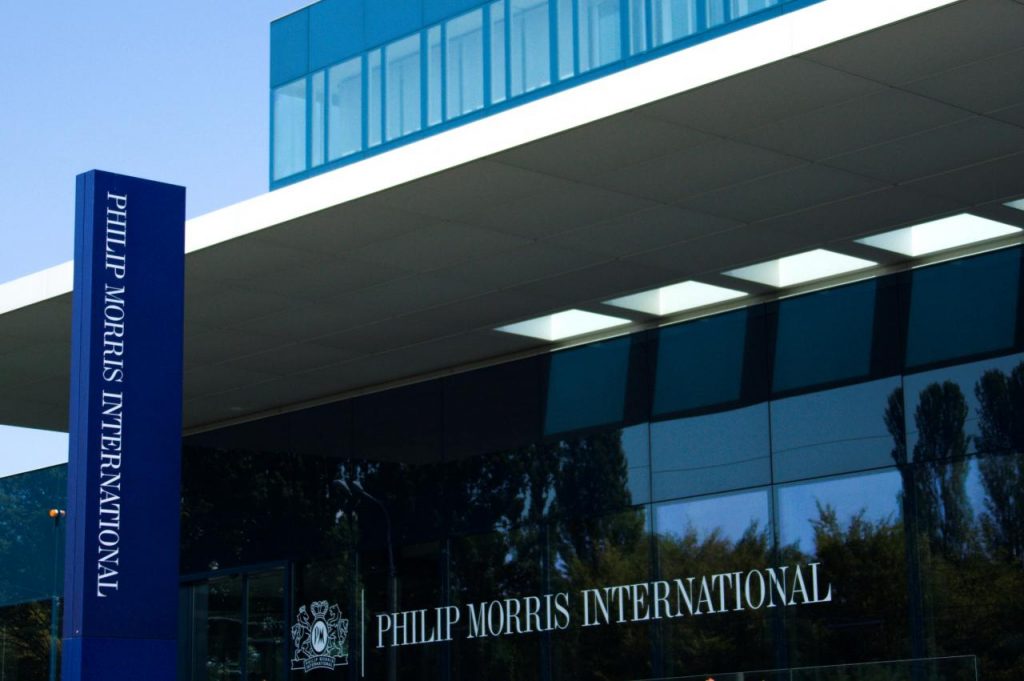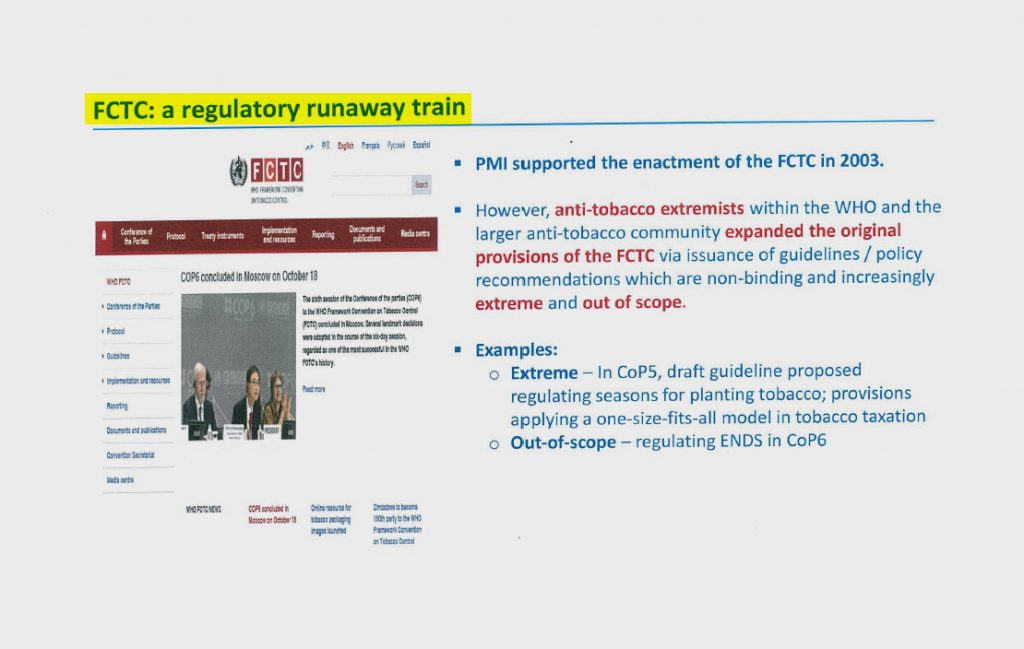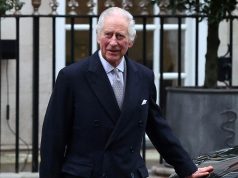
NEW DELHI/LAUSANNE, Switzerland — Philip Morris International Inc. is waging a secret campaign to subvert the World Health Organization’s anti-smoking treaty, which was designed to save lives by curbing tobacco use, a Reuters investigation published today reveals.
In one of the largest-ever tobacco industry leaks, internal Philip Morris International documents seen by Reuters, combined with reporting in 14 countries, expose a clandestine lobbying operation that stretches from the Americas to Africa to Asia.
In internal emails, Philip Morris executives take credit for the watering down of anti-smoking measures at the biennial meeting of the tobacco control treaty, known as the Framework Convention on Tobacco Control, or FCTC. The thousands of pages of documents reviewed by Reuters also include Philip Morris plans to set up a “global project team” for “achieving scrutiny” of tobacco control advocates.
The full story — along with a selection of internal Philip Morris documents uncovered by Reuters — can be read online: reut.rs/2sSSnyQ
Philip Morris International, which sells Marlboro and other cigarettes outside the United States, says there is nothing improper about its executives engaging with government officials.
“As a company in a highly regulated industry, speaking with governments is part of our everyday business,” said Tony Snyder, vice president of communications for Philip Morris International. “The fact that Reuters has seen internal emails discussing our engagement with governments does not make those interactions inappropriate.”

Philip Morris, which like other tobacco companies isn’t invited to the biennial treaty meetings, runs covert operations centers in the cities hosting the treaty meetings. During these gatherings, the company’s executives meet secretly with delegates from member nations that are party to the treaty.
Some 90 percent of the world’s nations are members of the FCTC. Since the treaty came into force in 2005, it has persuaded dozens of nations to boost taxes on tobacco products, pass laws banning smoking in public places and increase the size of health warnings on cigarette packs. Because of the treaty, an estimated 22 million smoking-related deaths will be averted, according to a study by researchers at Georgetown University Medical Center.
For Philip Morris, the treaty is a “regulatory runaway train” driven by “anti-tobacco extremists,” according to a description contained in a 2014 internal PowerPoint presentation.

While the company targets the biennial treaty conferences where new tobacco control measures are negotiated, it also intervenes at the country level where treaty delegates are picked and tobacco control laws are enacted.
One of Philip Morris’ goals has been to boost the presence of delegates in the national treaty delegations who are not from health agencies. That has happened, according to a Reuters analysis of delegation rosters.
Delegations to the treaty now include more representatives of ministries linked to tax, finance or agriculture interests who may put revenues from tobacco over health concerns. The number of those delegates has risen from a few dozen in 2006 to more than 100 in recent years.
The internal company documents detail efforts to stymie the anti-smoking treaty that span years and include dozens of employees. After the end of the FCTC conference in Moscow in 2014, Philip Morris executives congratulated themselves on weakening new anti-smoking proposals, including ones related to international trade, tobacco farming and tobacco company liability, internal emails show.









